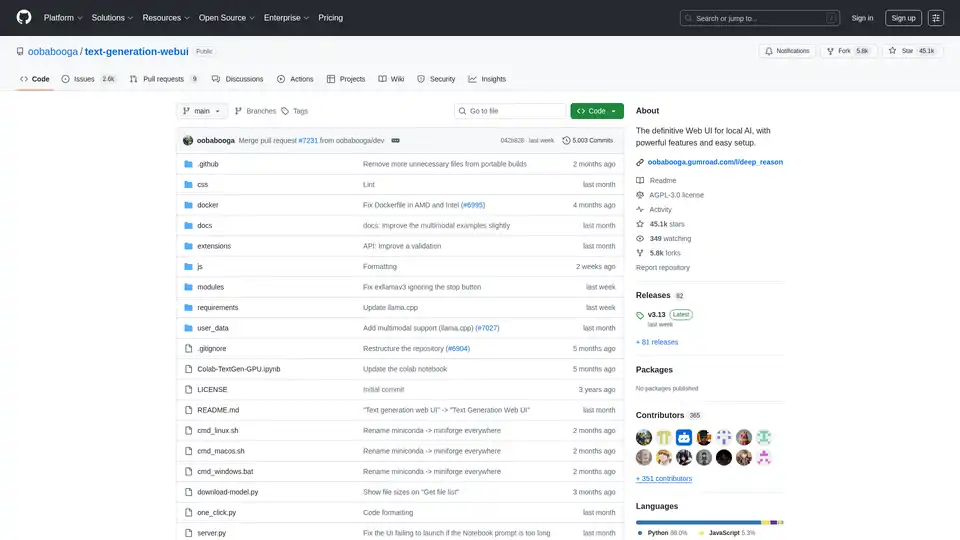Text Generation Web UI
Overview of Text Generation Web UI
Text Generation Web UI: The Ultimate Web Interface for Local AI
What is Text Generation Web UI?
Text Generation Web UI, also known as oobabooga/text-generation-webui, is a user-friendly and feature-rich Gradio web interface designed for interacting with Large Language Models (LLMs) locally. It provides a comprehensive set of tools and functionalities to harness the power of AI text generation on your own machine, ensuring privacy and control.
How does Text Generation Web UI work?
This web UI acts as a bridge between you and various local text generation backends. It supports multiple backends like llama.cpp, Transformers, ExLlamaV3, ExLlamaV2, and TensorRT-LLM. The UI allows you to:
- Select your preferred backend: Choose the backend that suits your hardware and model requirements.
- Load and manage models: Easily load different LLMs and switch between them without restarting the application.
- Configure generation parameters: Fine-tune the text generation process with various sampling parameters and generation options.
- Interact with the model: Use the intuitive chat interface or the free-form notebook tab to interact with the model.
Why choose Text Generation Web UI?
- Privacy: All processing is done locally, ensuring your data remains private.
- Offline functionality: No internet connection is required, allowing you to use the tool anytime, anywhere.
- Versatility: Supports multiple backends and model types, providing flexibility and customization.
- Extensibility: Offers extension support for adding new features and functionalities.
- Ease of use: User-friendly interface with dark and light themes, syntax highlighting, and LaTeX rendering.
Key Features:
- Multiple Backend Support: Seamlessly integrates with
llama.cpp,Transformers,ExLlamaV3,ExLlamaV2, andTensorRT-LLM. - Easy Setup: Offers portable builds for Windows/Linux/macOS, requiring zero setup, and a one-click installer for a self-contained environment.
- Offline and Private: Operates 100% offline with no telemetry, external resources, or remote update requests.
- File Attachments: Allows uploading text files, PDF documents, and .docx files to discuss their content with the AI.
- Vision (Multimodal Models): Supports attaching images to messages for visual understanding (tutorial).
- Web Search: Can optionally search the internet with LLM-generated queries to add context to conversations.
- Aesthetic UI: Features a clean and appealing user interface with dark and light themes.
- Syntax Highlighting and LaTeX Rendering: Provides syntax highlighting for code blocks and LaTeX rendering for mathematical expressions.
- Instruct and Chat Modes: Includes instruct mode for instruction-following and chat modes for interacting with custom characters.
- Automatic Prompt Formatting: Uses Jinja2 templates for automatic prompt formatting.
- Message Editing and Conversation Branching: Enables editing messages, navigating between versions, and branching conversations.
- Multiple Sampling Parameters: Offers sophisticated control over text generation with various sampling parameters and generation options.
- Model Switching: Allows switching between different models in the UI without restarting.
- Automatic GPU Layers: Automatically configures GPU layers for GGUF models on NVIDIA GPUs.
- Free-Form Text Generation: Provides a Notebook tab for free-form text generation without chat turn limitations.
- OpenAI-Compatible API: Includes an OpenAI-compatible API with Chat and Completions endpoints, including tool-calling support.
- Extension Support: Supports numerous built-in and user-contributed extensions.
How to Install Text Generation Web UI:
- Portable Builds (Recommended for Quick Start):
- Download the portable build from the releases page.
- Unzip the downloaded file.
- Run the executable.
- Manual Portable Install with venv:
git clone https://github.com/oobabooga/text-generation-webui cd text-generation-webui python -m venv venv # On Windows: venv\Scripts\activate # On macOS/Linux: source venv/bin/activate pip install -r requirements/portable/requirements.txt --upgrade python server.py --portable --api --auto-launch deactivate - One-Click Installer (For advanced users):
- Clone the repository or download the source code.
- Run the startup script for your OS (start_windows.bat, start_linux.sh, or start_macos.sh).
- Select your GPU vendor when prompted.
- After installation, open
http://127.0.0.1:7860in your browser.
Downloading Models:
Models should be placed in the text-generation-webui/user_data/models folder. GGUF models should be placed directly into this folder, while other model types should be placed in a subfolder.
Example:
text-generation-webui
└── user_data
└── models
└── llama-2-13b-chat.Q4_K_M.gguf
text-generation-webui
└── user_data
└── models
└── lmsys_vicuna-33b-v1.3
├── config.json
├── generation_config.json
├── pytorch_model-00001-of-00007.bin
...
You can also use the UI to download models automatically from Hugging Face or use the command-line tool:
python download-model.py organization/model
Run python download-model.py --help to see all the options.
Who is Text Generation Web UI for?
Text Generation Web UI is ideal for:
- Researchers and developers working with LLMs.
- AI enthusiasts who want to experiment with text generation.
- Users who prioritize privacy and want to run LLMs locally.
Useful Resources:
Text Generation Web UI provides a powerful and versatile platform for exploring the capabilities of local AI text generation. Its ease of use, extensive features, and commitment to privacy make it an excellent choice for anyone interested in working with Large Language Models on their own terms.
Best Alternative Tools to "Text Generation Web UI"
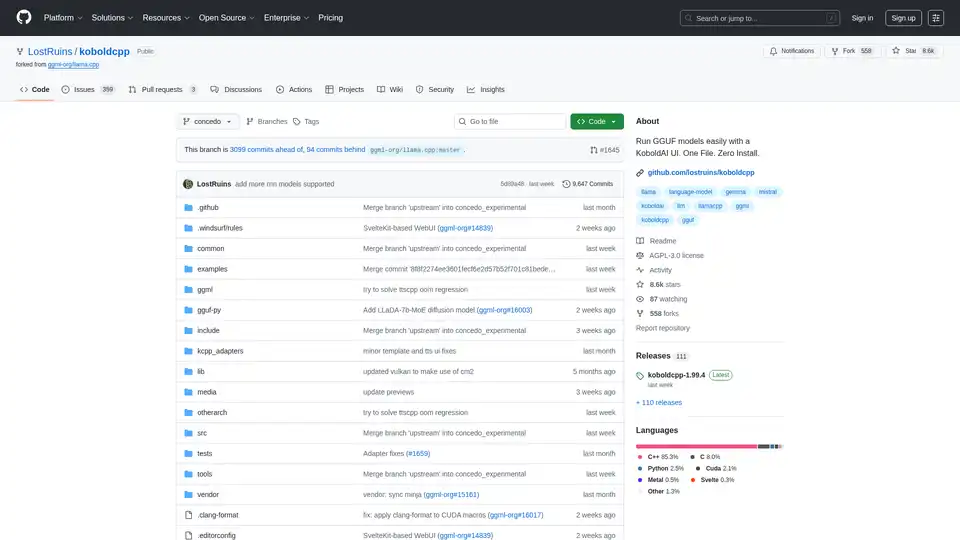
KoboldCpp: Run GGUF models easily for AI text & image generation with a KoboldAI UI. Single file, zero install. Supports CPU/GPU, STT, TTS, & Stable Diffusion.
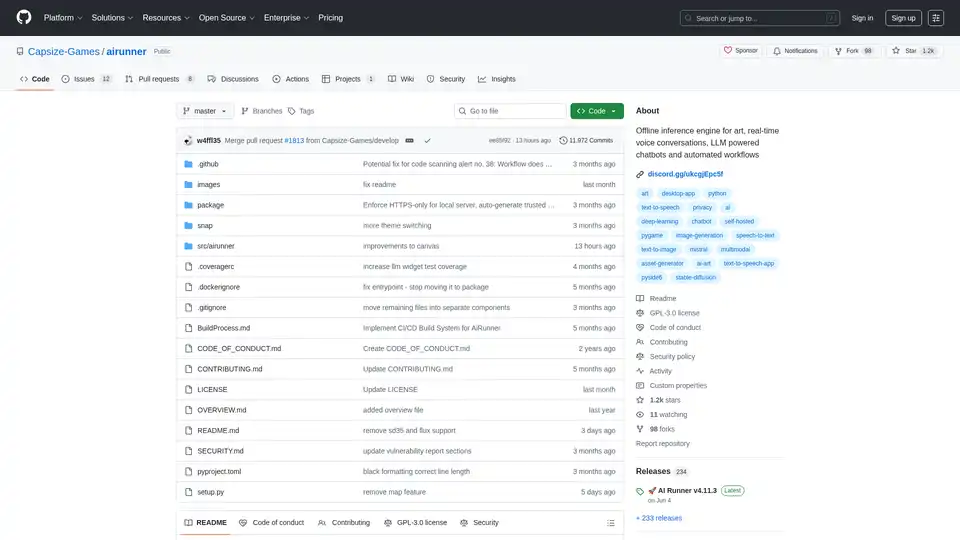
AI Runner is an offline AI inference engine for art, real-time voice conversations, LLM-powered chatbots, and automated workflows. Run image generation, voice chat, and more locally!
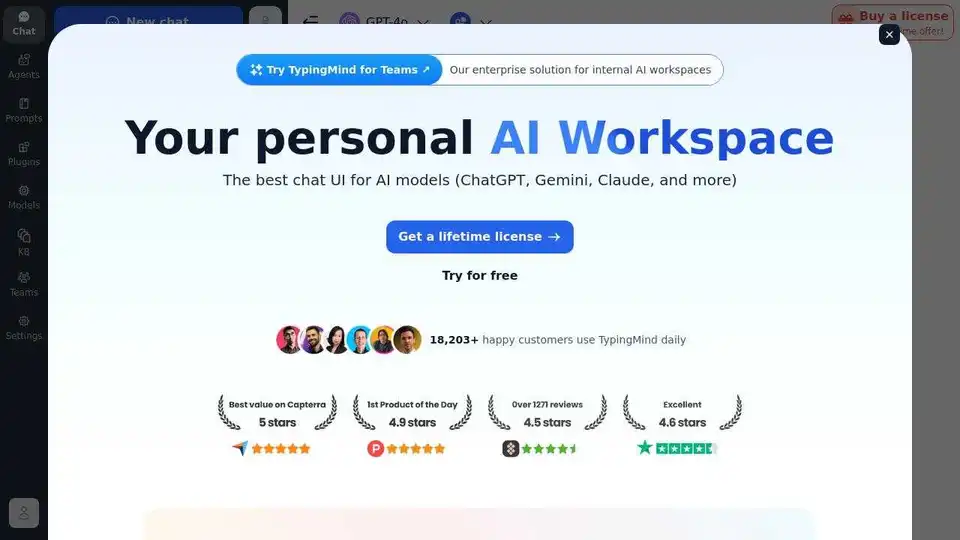
TypingMind is an AI chat UI that supports GPT-4, Gemini, Claude, and other LLMs. Use your API keys and pay only for what you use. Best chat LLM frontend UI for all AI models.
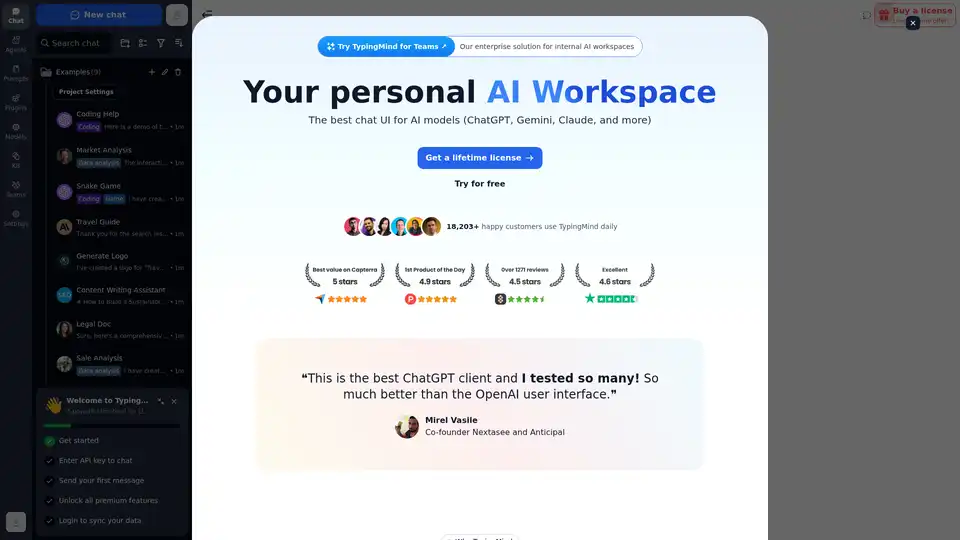
Chat with AI using your API keys. Pay only for what you use. GPT-4, Gemini, Claude, and other LLMs supported. The best chat LLM frontend UI for all AI models.
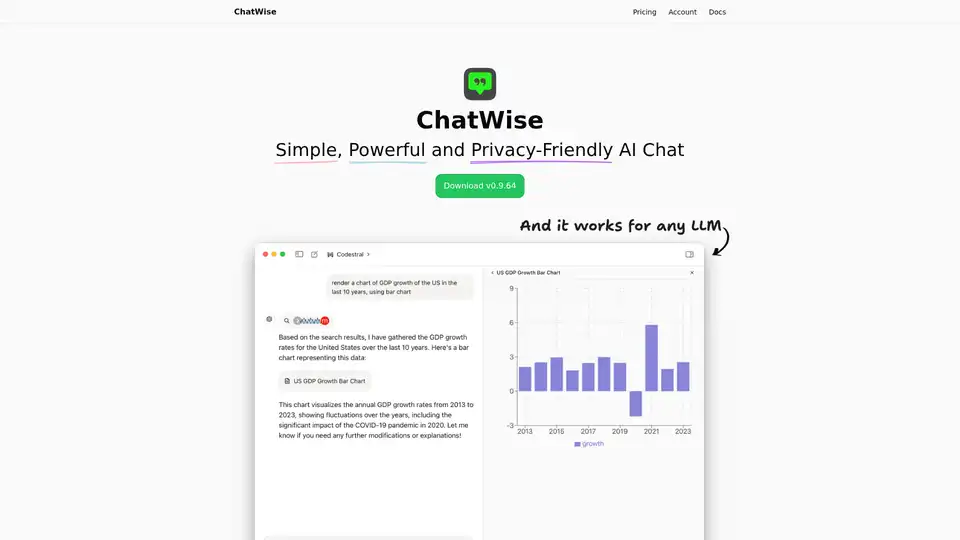
ChatWise is a high-performance, privacy-focused desktop AI chatbot supporting GPT-4, Claude, Gemini, Llama and more. Features local data storage, multi-modal chats (audio, PDF, images), web search, API key integration, and artifacts rendering for seamless productivity.
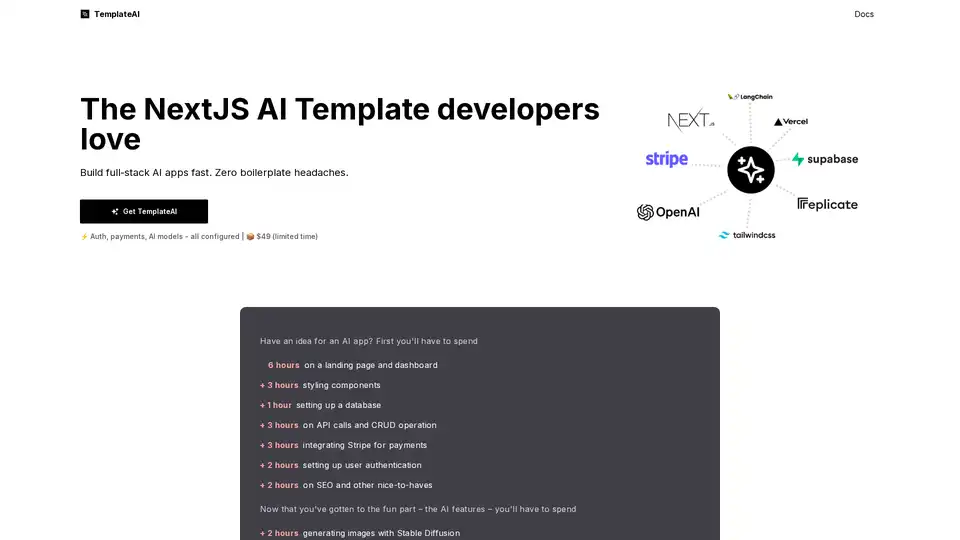
TemplateAI is the leading NextJS template for AI apps, featuring Supabase auth, Stripe payments, OpenAI/Claude integration, and ready-to-use AI components for fast full-stack development.
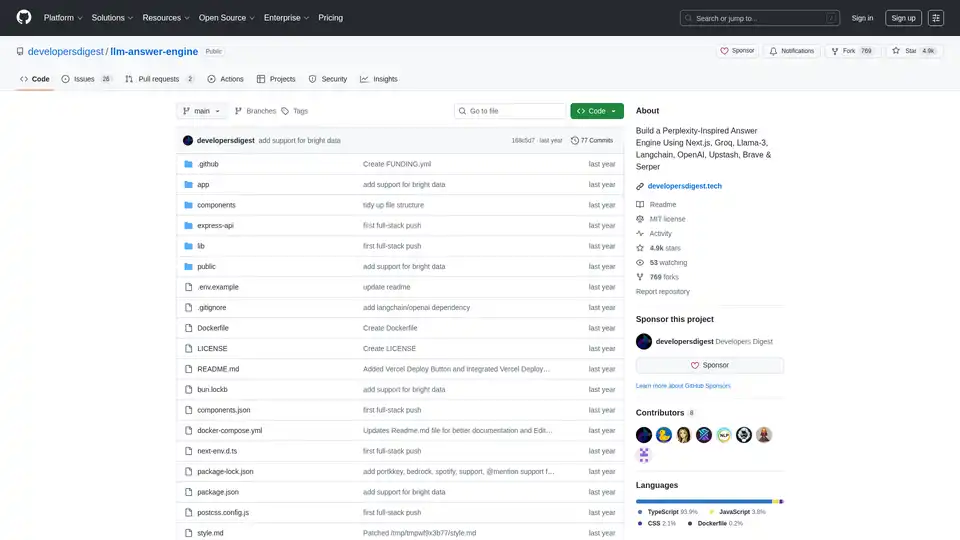
Build a Perplexity-inspired AI answer engine using Next.js, Groq, Llama-3, and Langchain. Get sources, answers, images, and follow-up questions efficiently.
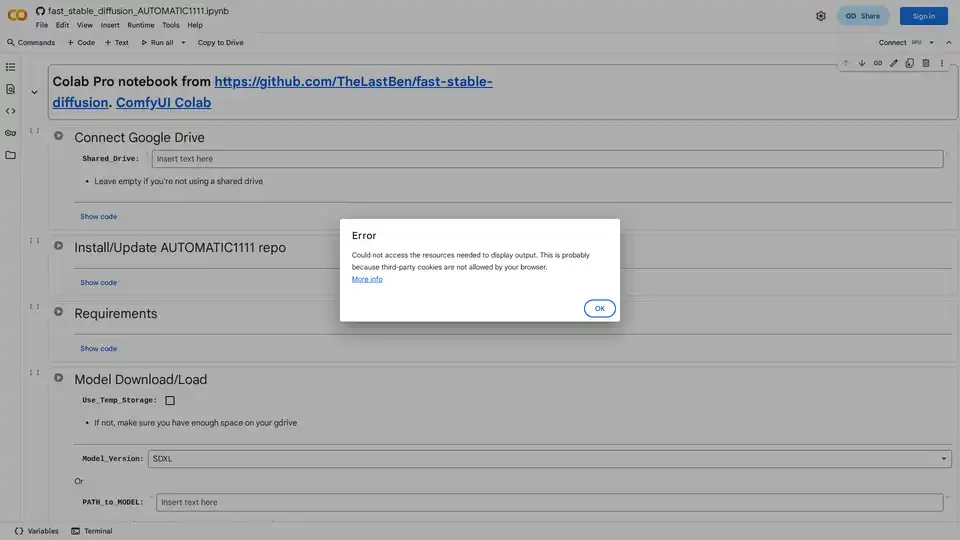
Discover how to effortlessly run Stable Diffusion using AUTOMATIC1111's web UI on Google Colab. Install models, LoRAs, and ControlNet for fast AI image generation without local hardware.
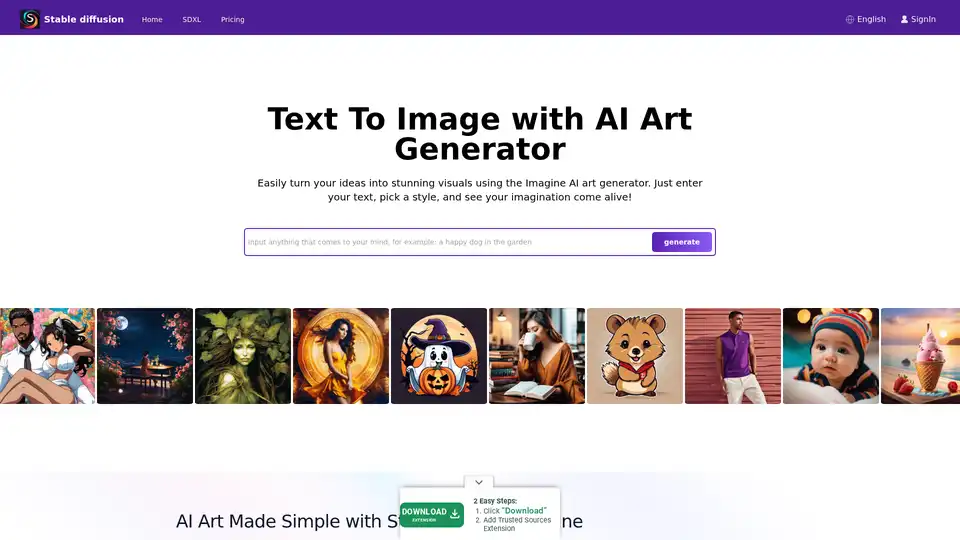
Explore Stable Diffusion, an open-source AI image generator for creating realistic images from text prompts. Access via Stablediffusionai.ai or local install for art, design, and creative projects with high customization.
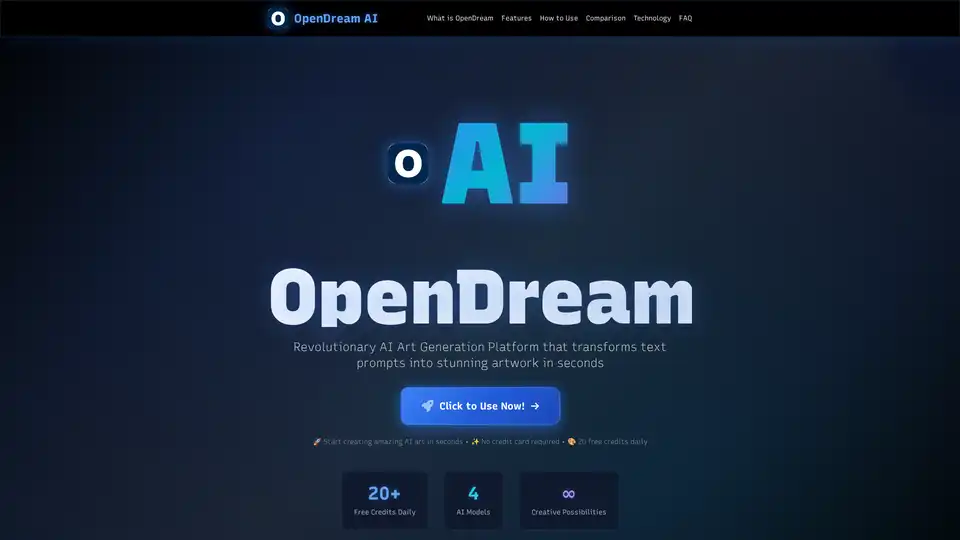
OpenDream AI transforms text into stunning AI art in seconds. Generate high-quality images with multiple AI models. Free tier available. Start creating now!
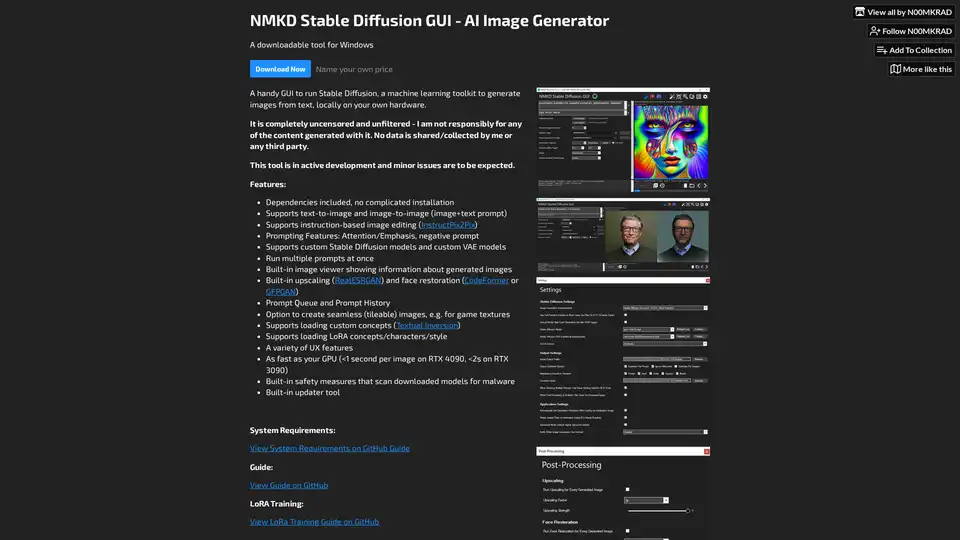
NMKD Stable Diffusion GUI is a free, open-source tool for generating AI images locally on your GPU using Stable Diffusion. It supports text-to-image, image editing, upscaling, and LoRA models with no censorship or data collection.
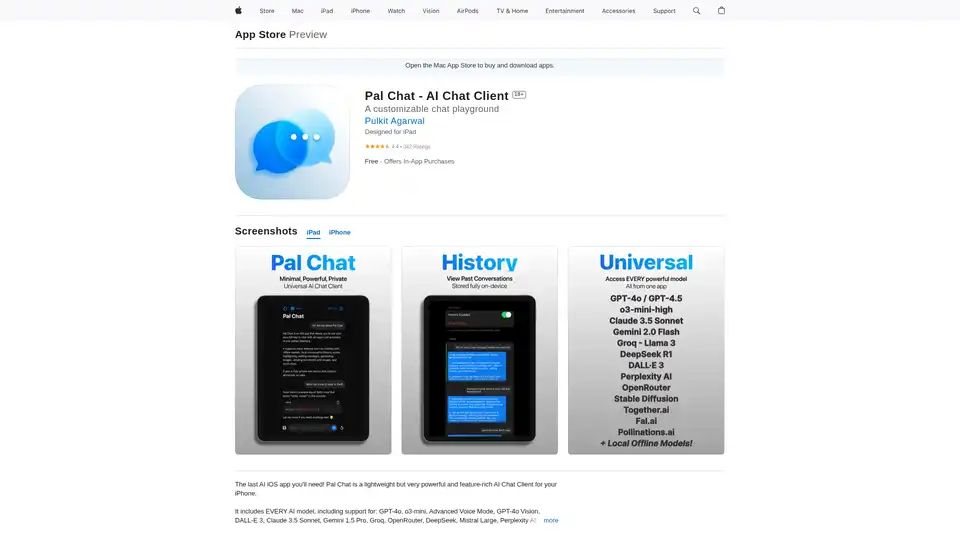
Discover Pal Chat, the lightweight yet powerful AI chat client for iOS. Access GPT-4o, Claude 3.5, and more models with full privacy—no data collected. Generate images, edit prompts, and enjoy seamless AI interactions on your iPhone or iPad.
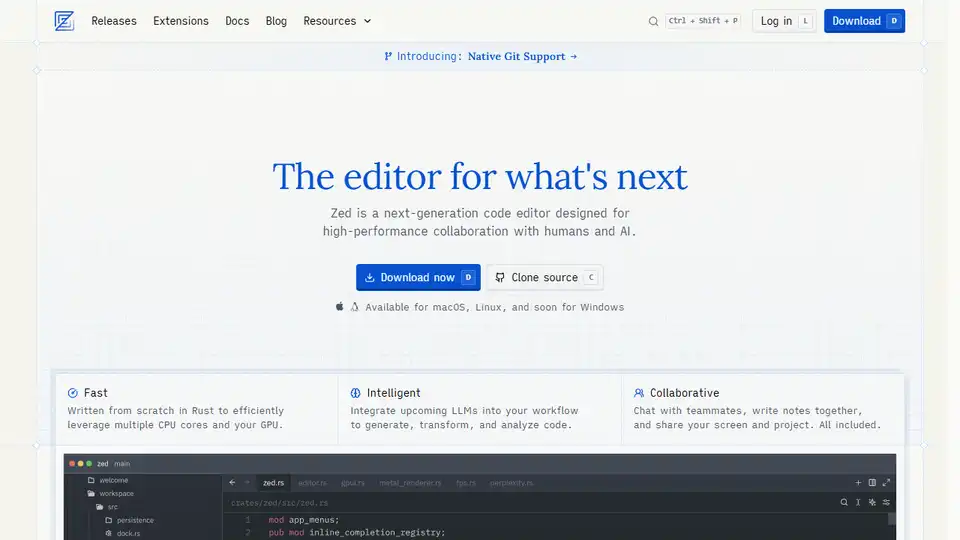
Zed is a high-performance code editor built in Rust, designed for collaboration with humans and AI. Features include AI-powered agentic editing, native Git support, and remote development.
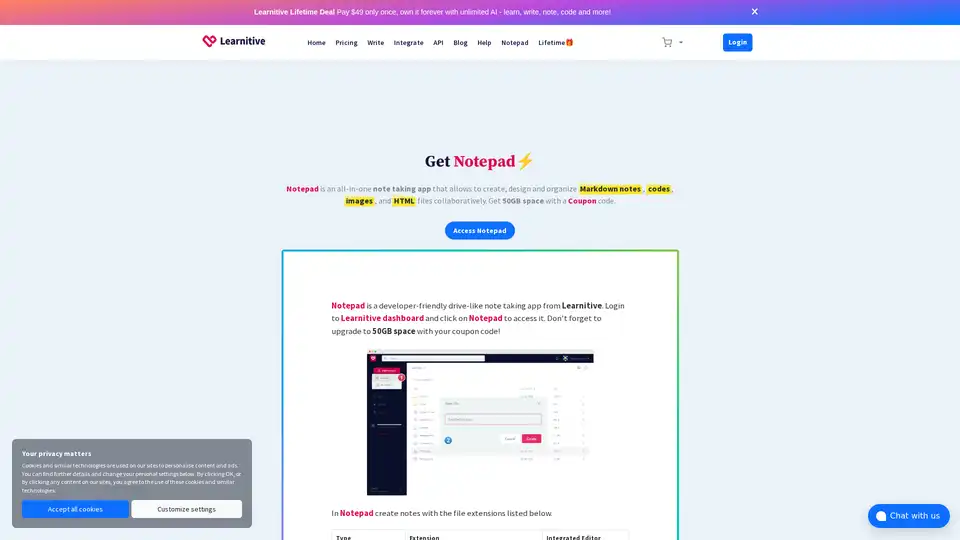
Learnitive Notepad is an AI-powered all-in-one note-taking app for creating Markdown notes, codes, photos, webpages, and more. Boost productivity with 50GB storage, unlimited AI assistance, and cross-device support.
